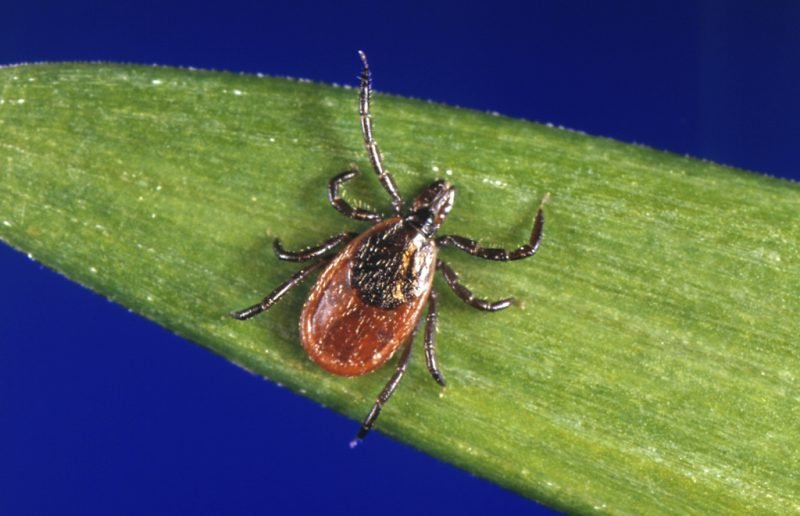
(NEXSTAR) – You’ve likely heard public health officials’ repeated pleas to check yourself, your kids and your pets for tick bites, which can spread serious diseases. While Lyme disease gets the most attention – and affects the most people – there are other tick-borne bacteria and diseases that have also been found spreading in the U.S.
Just last month, Connecticut researchers said they identified the first case of a longhorned tick infected with a pathogen called ehrlichia chaffeensis. Infections can give people fever chills, headaches, muscle aches and stomach issues.
“We also worry about a parasite called Babesia, which causes a disease called Babesiosis,” said Nicole Baumgarth, a professor of molecular microbiology and immunology at the Johns Hopkins Bloomberg School of Public Health, in a recent briefing on tick-borne illnesses.
The same ticks that carry the bacteria that cause Lyme disease can carry this parasite, which then infects people’s red blood cells, causing anemia and other “very serious consequences,” Baumgarth said.
Some people infected by the parasite may feel flu-like symptoms, explains the Centers for Disease Control and Prevention, while others may have no symptoms at all. That’s a problem if people live with the parasite and then donate their infected blood, which can cause harm to the people who receive it as a transfusion.
Baumgarth also warned of viruses that can be spread by ticks, such as tick-borne encephalitis. It’s an infection that can cause inflammation of the brain and spinal cord. It’s a bigger problem in Europe than in the U.S., she said, but here we have Heartland virus and Powassan virus to contend with.
“Both viruses are still very rare, but we have seen our first case of Heartland virus in Maryland last year, and the fact that we are now seeing these virus infections in areas that we haven’t seen them before, it probably indicates the tip of the iceberg,” said Baumgarth.
Because these viruses are rarer, and their symptoms can be non-specific, doctors don’t usually think to test for them, Baumgarth explained. Many cases of Heartland and Powassan virus could be left uncounted as a result.
“So it would be rare that we diagnose it because we are not looking hard enough for it right now,” she said.
Both viruses can present with generic first symptoms like fever, headache and vomiting, but can cause serious illness if left unchecked. Powassan virus could lead to seizures, loss of coordination and confusion in severe cases where the brain and spinal cord are impacted.
Yet another concern is the tick that can cause people to become allergic to red meat if they’re bitten. It’s called alpha-gal syndrome and is caused by bites from the Lone Star tick, first identified in Texas. However, this type of tick is “very aggressively” moving north and becoming a problem in other regions of the country, according to Baumgarth.
Some of these rare viruses don’t have a treatment or cure, so prevention is what’s most important, the CDC says. You should avoid ticks by wearing long sleeves and pants in bushy and wooded areas, using bug repellent, and doing a thorough tick check after spending time outside.


